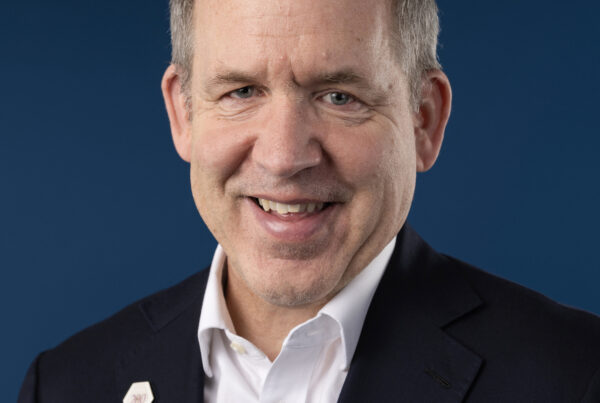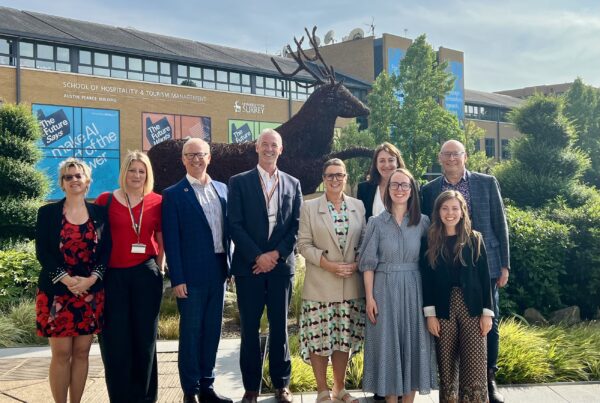How and why would we build new universities from scratch?
The Australian Universities Accord interim report generated widespread consensus around its overall vision of meeting our future skills needs through equity. It provides widely supported immediate policy changes and contains many detailed policy proposals being debated and engaged with by various players and parts of the Australian higher education system. It invites the sector to embrace long term experimentation and change with pointers to how changes in the future of work, stresses in the current model, and forthcoming technological change and a dynamic global geo-political landscape, require more differentiated future institutions with mission-based or intentional approaches to providing learning.
One could argue that there are major flaws with our current system and institutions, that require change in how universities operate. These flaws are that graduates lack the skills for a fast-changing future of work in a complex world. They are that study is too expensive and does not represent good value for money. They are that study is long and difficult to complete, partly because of bad experiences. And they extend to access to completable study being inequitable for different groups in society. Some of these flaws may be easier for universities to respond to by starting from scratch, than by tweaking existing models.
Many employers are looking to alternatives to degree level education among their workforces as the only means of meeting their skills needs. This is because of a combination of dissatisfaction with the product of many current educational programs and the realisation that the accelerating rate of technological and societal change means the skills needed for a future of work require greater flexibility and continuous updating.
The US student debt crisis, which is starting to be felt elsewhere, and the challenges of the growing costs of university study, are also at play in the short term. This lies alongside the growing realisation of long-term population declines, beyond short term demographic trends, caused by falling global birth rates. The same phenomena are why international onshore student numbers and available graduate work forces, may not continue to grow or be maintained in the long term.
This is all added to by increasing data and other evidence that many learners are not enjoying the student experience or the support they are provided. They are increasingly not, attending campuses, or completing studies, and some institutions are not doing enough to counter that.
There is evidence that short-term global softness in domestic university demand will not recover. The US is ahead of the curve in declining total student numbers, increased attractiveness of online study, and learners and employers looking to alternatives to full degrees for school-leavers, and postgraduate degrees for mature learners. These go beyond shorter and more continuous lifelong learning. In the increases in softness in demand, there is a growing gap in this being more pronounced among time poor equity groups, than within more affluent and advantaged parts of societies.
Our system, the student experience, and the whole sector can be argued to be inequitable, unfit for purpose, outdated, and in urgent need of change.
There are few and scarce examples of how we could intentionally get to a different university model for the future by starting again and creating wholly new, differentiated, student focussed, globally relevant learning providers. These would be intentional and driven by metrics of student engagement, completion rates and of what graduates go on to achieve in leadership and future study. These go beyond immediate graduate employment rates and starting salaries. Our measures of suitability for a changing future might be better served by status in innovation than historical reputation in research rankings and prestige.
One such innovator is the not-for-profit private provider Minerva University, which has been on the journey to build a different type of university that is intentionally global. After 10 years of helping students from 100 countries learn in a rotation in 7 global cities in North and South America, Europe and Asia, Minerva was named the world’s most innovative university for the second year running by the World Universities with Real Impact rankings.
It does so with no campuses or owned buildings, no lab-based or funded research beyond the scholarship of teaching and learning, and no facilities or investments of resources of any kind that do not focus on the student experience. It teaches global students to become leaders with cities as places of learning, and educational technology as a key enabler. A university experience that is truly global, and skills focussed on foundational knowledge, inter-personal skills and inter-cultural competence and teamwork, is intentionally aimed at the future skills needs of global leaders.
The benefits of starting from scratch in responding to these existential challenges of global higher education has significant advantages over seeking to change a current model. This is a model widespread among providers with legacy leadership, administration, curricula, processes, facilities, infrastructure and ancillary operations and activities.
The principles of taking learners from around the world to the most stimulating and dynamic global places to learn, through immersion in cities and their economies and culture, is unique. Using advanced learning pedagogies and educational technology platforms to make that possible, is novel. The combination is almost impossible for an existing legacy institution to emulate. Any national higher education system undergoing review and strategizing a new vision for the future needs to look to such global exemplars of innovation and new ways of doing things for inspiration.
We discussed how Minerva presents that opportunity and is being studied and referenced as an educational innovation by leaders from around the world, in a recent episode of the HEDx podcast you can listen to here.
First published in Campus Review on 7th August 2023.
Martin Betts, Co-Founder of HEDx
Terri Cannon, Founding President, Minerva University









